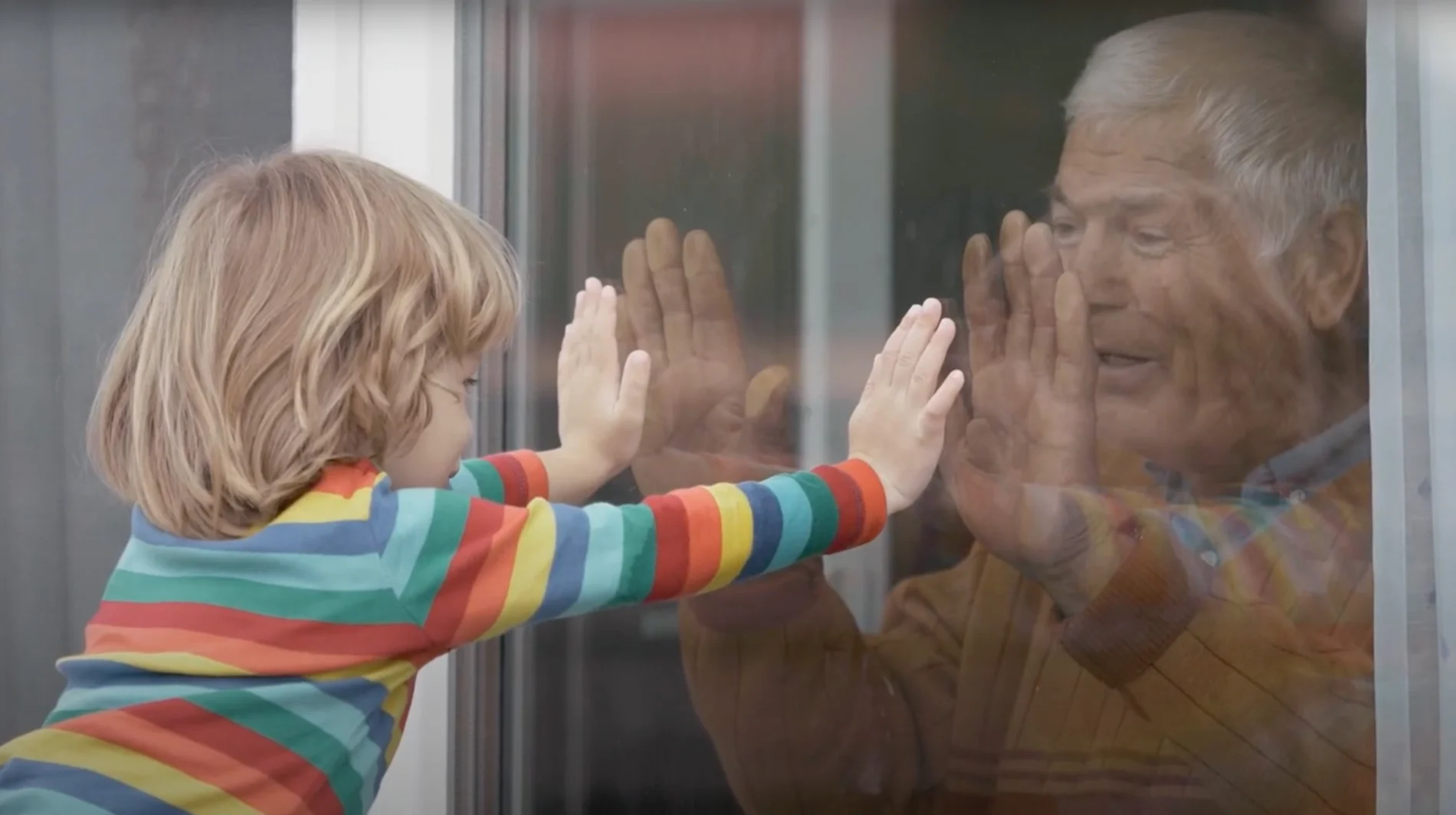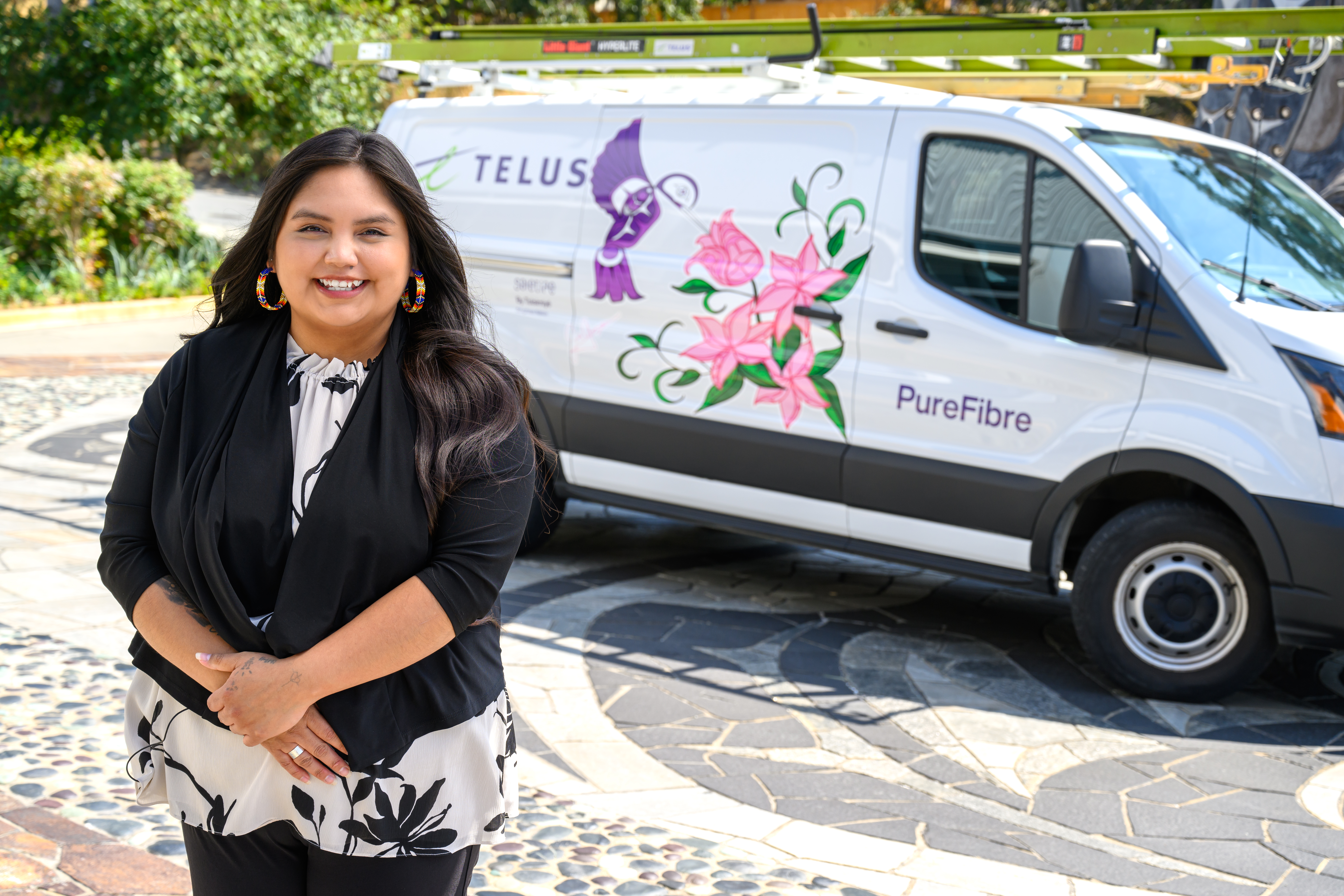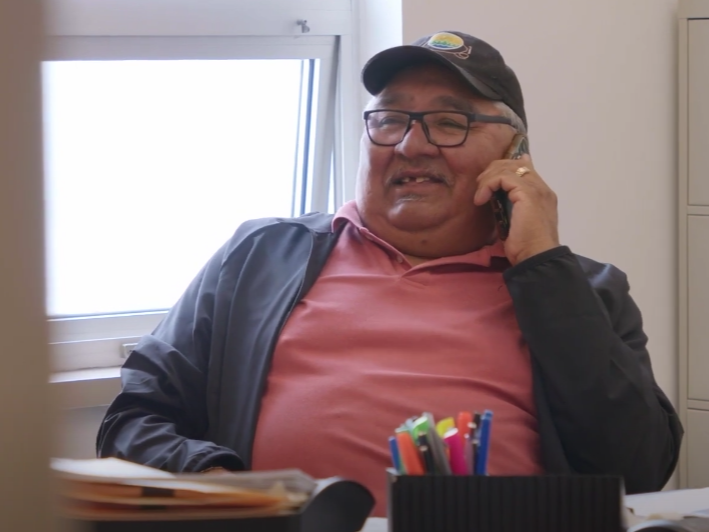
Connecting Canada
How a smartphone program is helping seniors to stay healthy and safe
Feb 4, 2022
Weekends mean laughter for British Columbia senior Andrew Smith. A little FaceTiming and cross-generational banter over a smartphone with his granddaughter quickly erases the 4,300 kilometres between them while she attends the University of Ottawa.
It’s a welcome and, frankly, vital connection after two challenging years for Smith. In February 2020, the active 74-year-old was diagnosed with cancer. Then along came COVID-19.
A long-time diabetic, and now a cancer patient, Smith was immediately isolated from friends and family due to a compromised immune system. Worse still, he was forced to leave a job that he loved and had earned him an important income beyond his pension that he used to cover extra medical bills.
“I was working four hours a day, five days a week, and I really enjoyed it because I was out of the house and meeting friends that I delivered to,” he says about life before coronavirus.
Fortunately for Smith, digital connection through
TELUS Mobility for Good® for Seniors
gave him the opportunity to stay in touch with the people, resources and support systems he needed as he underwent treatment. TELUS Mobility for Good for Seniors is part of the
TELUS Connecting for Good
portfolio of programs that gives Canadians in need access to TELUS’ world-leading technology. Specifically, the TELUS Mobility for Good for Seniors program gives the 133K seniors who receive the Guaranteed Income Supplement of $6,500 or more from the federal government access to a discounted refurbished smartphone, along with a low-cost mobility rate plan, including unlimited nationwide talk and text, 3GB of high-speed data and unlimited data at throttled speeds. Entirely low-cost by the tech company, the program is designed to help address isolation and well-being concerns for vulnerable seniors amidst the pandemic. It enables more than connection with family and friends. Critically, a discounted smartphone and low-cost data plan also allows for much needed access to critical resources, including virtual healthcare technology and well-being apps that help users to better manage their mental and physical health.
“This year, in particular, has demonstrated how critical it is that more older Canadians have access to virtual healthcare options that can help them to stay healthy and safe,” says Dr. Samir Sinha, Director of Geriatrics at Sinai Health System and the University Health Network in Toronto.
In addition, says Dr. Sinha, “a smartphone can be a critical tool in allowing older Canadians to more safely navigate their communities and help prevent the mental and physical health challenges associated with isolation and loneliness, particularly as more older Canadians are staying home and increasingly avoiding gatherings to protect their health.”
Apply for Mobility for Good
Human connection
Smith may be a FaceTiming pro today, but when the pandemic struck in 2020, communicating via technology was something he typically left up to his wife, Eldine.
Smith, who is used to being busy, had a lot to learn after the shock of isolation, combined with a reluctance to adopt new technology, began to take its toll.
“I was conversant with texting, that sort of stuff and emails, but I wasn't into FaceTime and all that stuff that I do now,” he says.
Over time, Smith has come to enjoy the convenience and ease of the various communication apps he once avoided. These days, he regularly keeps in touch with folks across Canada, and especially with family in Northern Ireland.
But staying connected with loved ones while staying safe has meant everything to the reluctant retiree. In sharing his story, he hopes to inspire other tech-adverse seniors to reach out for help going digital.
“So many seniors just need a little help to understand their phone and how to use it. And then, at a cost of $25 a month, they can FaceTime their friends every day, all day long,” he says.
Like many relative newcomers to the online world, Smith was astonished by how much he could accomplish on his smartphone and tablet, and how quickly.
TELUS Health MyCare
, and TELUS Health Virtual Pharmacy,
in particular, were game-changers in helping him manage his diabetes and cancer treatment regimen. The TELUS Health MyCare app enables British Columbians to set up virtual appointments with a licensed regional doctor, mental health counsellor or dietitian from their phone, where and when it’s convenient for them. While the TELUS Health Virtual Pharmacy enables automatic refill reminders, one-on-one video and phone consultations with pharmacists, and access to other pharmacy services right from the comfort of home.For seniors, virtual access to
TELUS Wise
® is a further benefit. The program covers topics including online safety, protecting your security and privacy, and avoiding common scams and identity theft. The program also offers a series of short but informative self-serve videos intended for those who are new to technology learn basic, everyday online skills - how to set up an email address, how to use video chat apps, how to navigate websites and more. For all its conveniences, however, it’s the human element of staying in touch with others that keeps Smith on his phone the most.
“I have a group of friends and we stay in contact either on text or emails,” he says.
It’s an experience he wants others to enjoy.
“There are so many seniors who are isolated, who just need a little help to understand their phone and how to use it,” he says. “For health and mental health reasons, this is a wonderful program.”
Low-income seniors in Alberta and British Columbia are also eligible for our
Internet for Good program
, which offers low-cost high-speed internet plans.In addition, Internet for Good for Seniors customers can access
LivingWell Companion™ Home
for just $10 per month. This service offers access to 24/7 emergency support at the push of a button, providing peace of mind and the ability to live more independently and feel safer at home.

